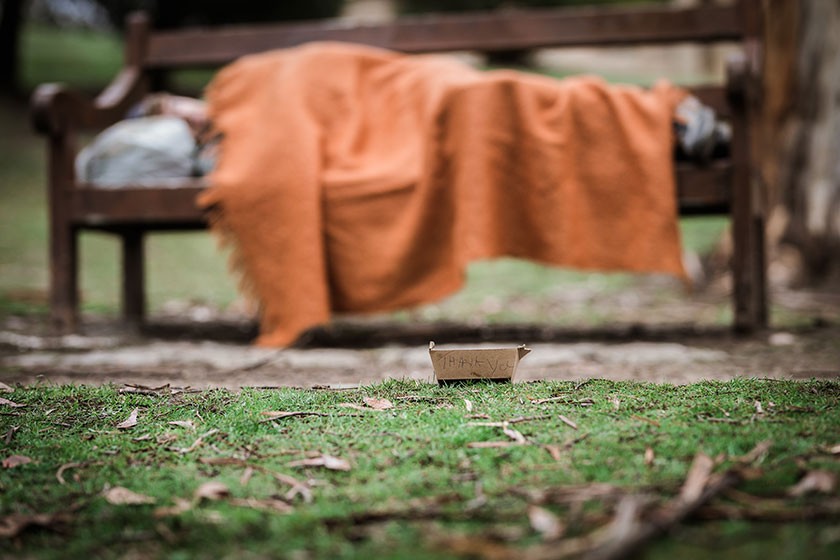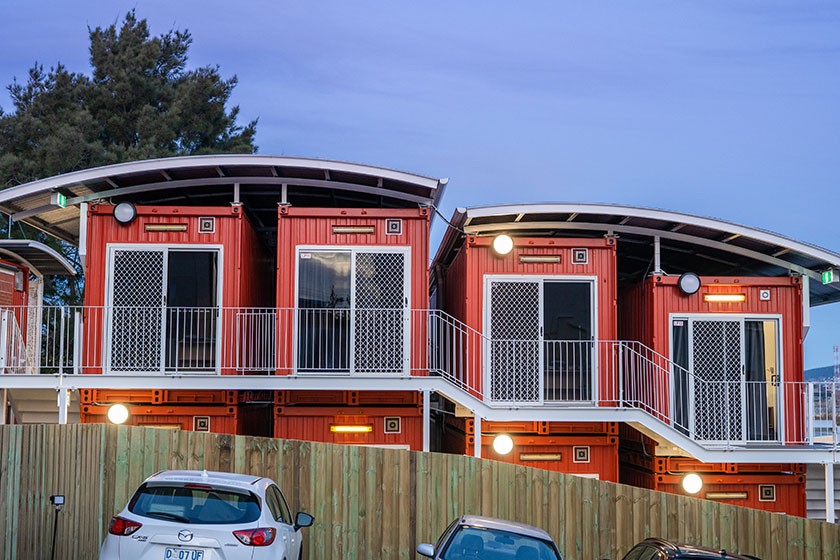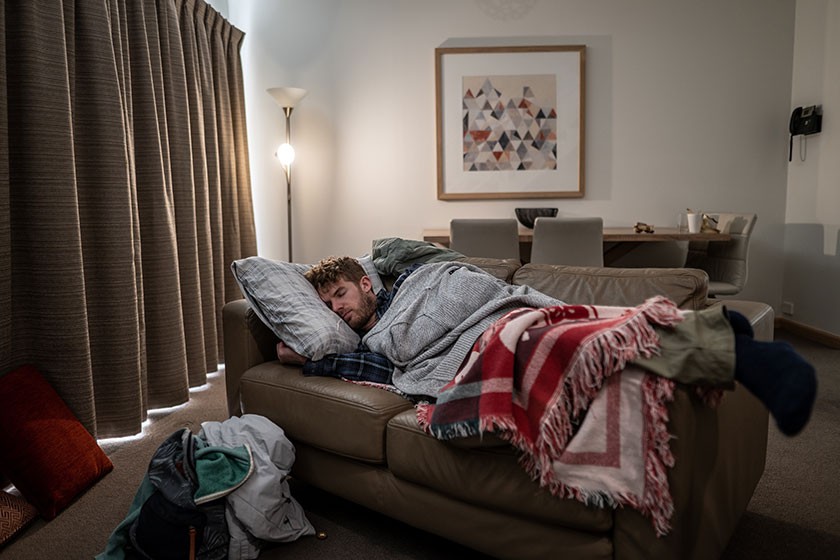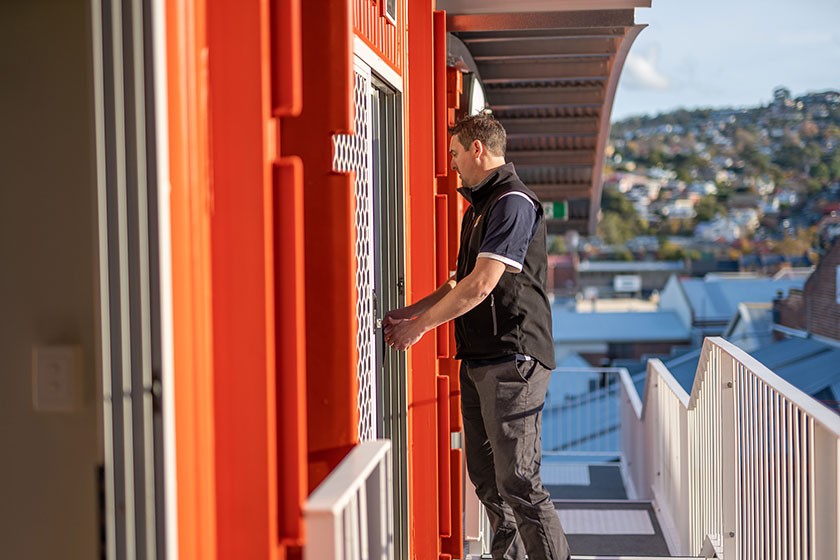

Experts warn an already-broken housing system could lead to more homelessness across Australia in the wake of COVID-19. Photo: Nick Hansen
By Geoff Shearer
Agility has emerged as a key definer in the success or otherwise of governments around the world in their response to the COVID-19 pandemic.
Those who moved fast and were able to adapt their bureaucracy to do so, such as the Australian Government, appear to have weathered the health crisis better than others, so far.
But industry groups and social action organisations are warning that the level of agility and innovation must continue as the nation now heads into the unchartered waters of what some are predicting will be the worst economic storm in Australia’s history.
One of the looming social issues is a severe worsening of the homelessness crisis.
Anglicare Australia’s recent Rental Affordability Snapshot sums it up with: “The lack of affordable housing for people on low incomes has been a crisis for over a decade. Now, with millions of Australians facing severe financial stress, a reckoning has come.”
Kate Colvin, spokeswoman for the Everybody’s Home campaign which is lobbying the Federal Government to address the country’s housing system, says COVID-19 has exposed just how badly that system is broken.
"In the last few months we've seen rough sleepers with nowhere to shelter from the virus, renters facing eviction overnight, and Australians paying so much in rent they can’t afford to stay afloat when they lose their job," she says.
"We already have 116,000 Australians who are homeless every night. Thousands more could join them if they lose the income they need for rent – and thanks to years of housing neglect there is not the necessary safety net in place."
Anglicare Australia Executive Director Kasy Chambers says there is an urgent need by governments to invest in affordable housing.
"Our shortfall is massive. We need 500,000 new affordable rentals across Australia," Ms Chambers says. "Investing in housing would be the most powerful way to tackle the rental crisis - and boost our economy ... and ensure everyone has a place to call home."
One authority that has reacted with agility to the call is the Tasmanian Government which has launched an eight-year $258 million Affordable Housing Strategy to create new permanent shelters and longer-term housing stock to address the crisis in its state.
The first stage of that was an immediate $5 million Emergency Homeless Response package under which some 35 shipping containers were repurposed as crisis accommodation in and around Hobart. The Tasmanian Government quickly passed legislative amendments to allow the pods to be used as housing on public land.
National shipping container hire, sales and specialised modification company Royal Wolf was commissioned by the government to construct 18 single-person purpose-built pods for Hobart’s Bethlehem House, a homeless accommodation service for men, and 10 larger shelters for the Hobart Women’s Shelter to be used as crisis accommodation for women and children fleeing domestic violence.

Royal Wolf installed 18 single-person pods at Bethlehem House, Tasmania. Photo: Nick Hansen
Royal Wolf CEO Neil Littlewood says the COVID-19 pandemic has forced governments to respond more quickly and creatively than ever before.
"In the last few months governments have had to be agile," he says. "And I think the public - and this is just my personal view – would appreciate governments being more fluid in their decision-making to try and tackle these emerging issues.
"I really applaud the Tasmanian Government and the industry for thinking about innovative ways to address problems and their progressive approach. It is a difficult proposition for any state or local or federal government to tackle this and the homelessness numbers vary, and the definition of what is homeless can also vary.
"A couple of concerning trends are the age creep - the number of people aged over 55 becoming homeless – and the access to safe and affordable housing. The large fallout of the pandemic is that housing affordability will become more difficult."
Mr Littlewood says one upshot of the pandemic has been an increased awareness of social issues and a reminder of our social responsibilities.

Homelessness comes in many forms, from couch surfing, sleeping in cars, or rough on the streets. Photo: Nick Hansen
The homelessness crisis, unfortunately, had been worsening even before COVID-19 hit. As early as last December reporting showed the shortage of rental properties for Australia’s very low income households was increasing by almost 7000 a year.
The Australian Housing and Urban Research Institute (AHURI) report also found households earning up to about $60,000 per year were being squeezed out of the market by middle and high income renters.
At the time, Ms Colvin warned the "overwhelming consensus" found by Everybody’s Home was that "this will only get worse without a national response".
And then, of course, came the virus and a resulting, looming recession.
Public policy think tank, Grattan Institute, says the economic challenge facing Australia in the coming months is unprecedented and the true size of the employment shock may not be fully revealed for some time.
In its recent report Shutdown: Estimating the COVID-19 Employment Shock, the Institute expects the unemployment rate could rise to between 10 and 15 per cent. It finds that lower-income workers are twice as likely to be out of work as high-income earners; while younger Australians and women are likely to be hit hardest, because they are more likely to be employed in occupations and industries most affected by the response to COVID-19.
"If our estimates are even close to accurate, Australia is facing either the worst or one of the worst economic downturns in its history," says Grattan Institute Household Finances Program Director, Brendan Coates.

Royal Wolf BDM Michael Nicholson locks up completed the pods, ready for the residents to move in. Photo: Nick Hansen
And a predicted drop in housing values by at least 10 per cent won’t actually help. A new report undertaken for AHURI by researchers from Swinburne University of Technology found that falling house prices in an economic crisis is unlikely to increase home ownership in the future.
"An important finding in the present COVID-19 context is that crises such as the Global Financial Crisis (GFC) which produced major falls in dwelling prices in many countries (less so in Australia) did not create a return to ownership.
"Fiscal austerity, lack of finance, weakened household income, purchasers being outbid by investors for available finance meant ownership in most Western countries fell sharply after the GFC rather than increased," the report found.
Home ownership in Australia is projected to decline from 67 per cent in 2016 to 63 per cent by 2040, further squeezing low-income earners out of the rental market and closer to homelessness.
It is these sobering statistics that highlight just how integral housing solutions, like those supplied by Royal Wolf, are in bracing for what looks set to be an incredibly difficult few years.